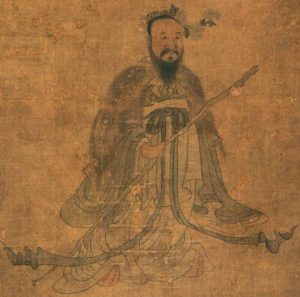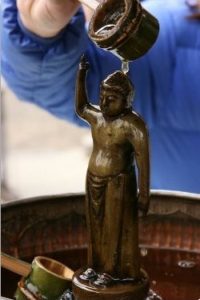Well, we’ve come to the end of the Chinese Lunar New Year season, a time of heartwarming traditions. As a young girl I always looked forward to getting red packets, having dinner with dad’s family, getting red packets, having dinner with mom’s side, getting red packets, etc. It’s far less fun when you’re a married adult and have to do the cooking and giving money and such, but I became a nun to avoid all that. You’ve also got your fireworks, dragon dances, and – if you’re a Mainlander – CCTV’s regular New Year’s Eve Gala cum minstrel show.
This year’s festivities were an especially welcome sign that this stupid pandemic is finally over nobody cares about covid anymore, with the Reds finally throwing in the towel. But we seem to have added a new tradition to LNY – online nationist bickering! Let’s see what happened when Disneyland tried to celebrate the occassion, shall we?:
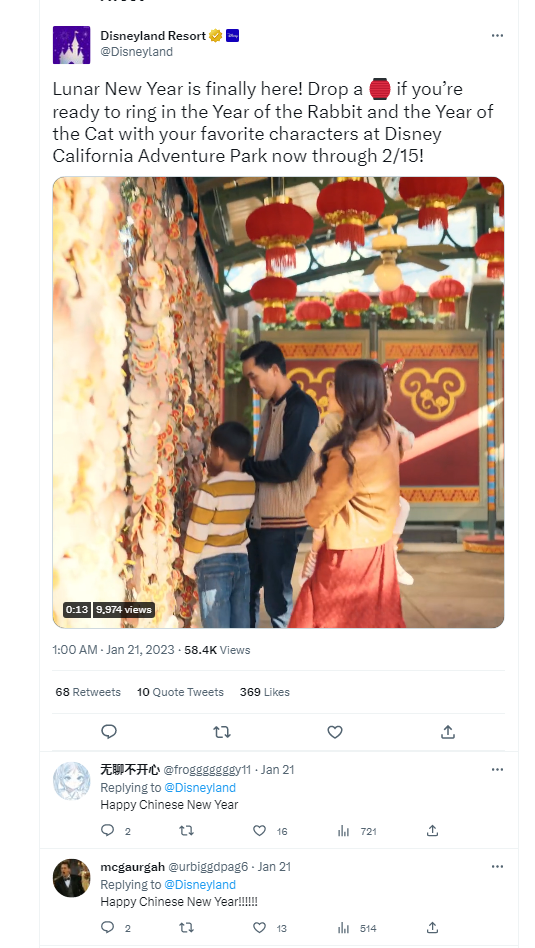
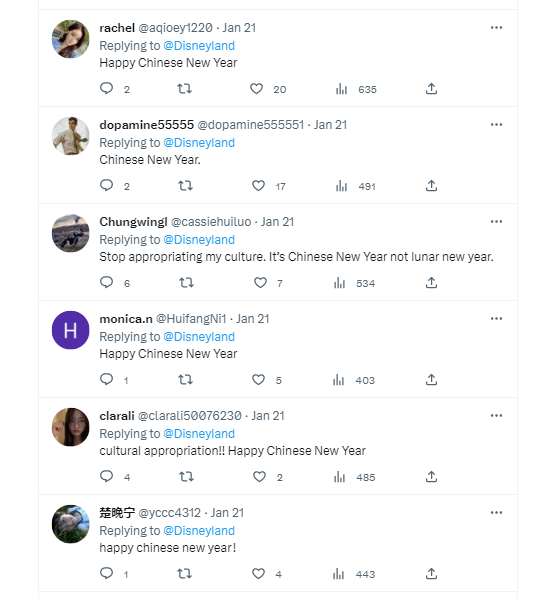
Mercy me! Cultural appropriation indeed! Or maybe it’s unappropriation in this case? Anyway, how dare they use generic astronomical language to describe a date based on an astronomical event! Oh, but Disney wasn’t the worst offender, no no. The British Museum had the gall to call it Korean New Year. It doesn’t matter that it related specifically to a Korean-themed event. Call it by it’s proper name! And what is that proper name, you ask? Let ’em hear it, dear sir:
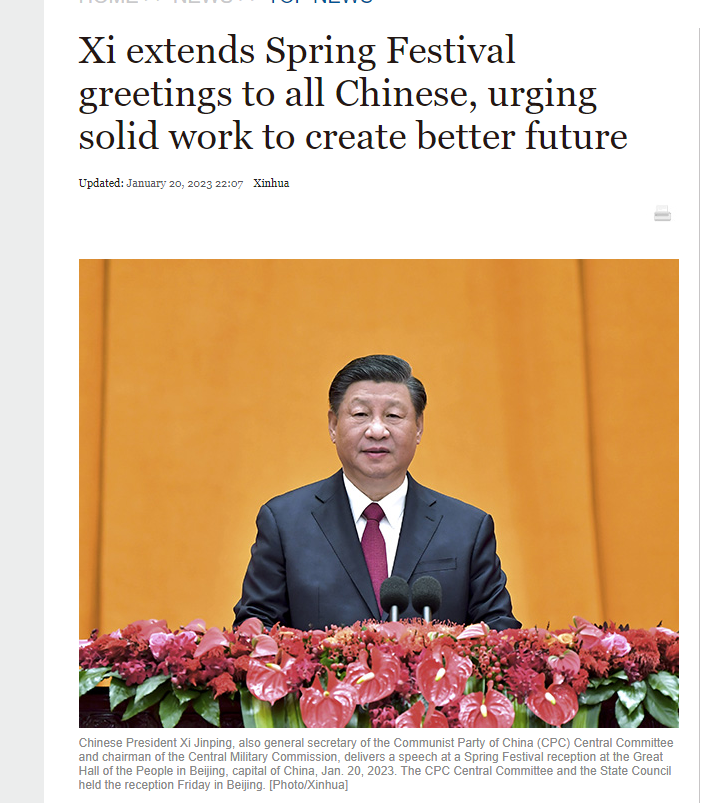
Oh…er…take that, then! It’s Spring Festival you sinophobes! Don’t like that the Chinese declare the start of spring when it’s still cold as the coldest Buddhist hell? Well, deal with it!
But in all seriousness, this is a very stupid controversy. I mean, the Dragon Boat thing is silly fun, but here we have a culture trying to lay claim to the lunar cycle. Yes, its true that the Chinese, developed the calendar and probably pioneered the whole festival thing – that’s the case for a lot of East Asian culture. But other countries and culures have put their own spin on it. We don’t call it “Greek” or “Roman Christmas,” do we?
I guess since the Chinese are still around (unlike ancient Rome) and can push their weight around (LOL Greece) that gives them more saying power. But the funny thing is that not even the CCP cares enough to wolf warrior this crap and call it “Chinese New Year”; the nitpicking is almost all completely online.
That probably means we can ignore the whole thing as a limited movement of superpatriots and tankies, quite of few of whom may actually be bots. Still, it bears repeating: nationalism over festivals is stupid.



 Thursday, June 25th, is the fifth day of the fifth month of the Chinese lunar calendar, when much of East Asia celebrates the Dragon Boat Festival. Dragon-boating has become popular across much of the world, with competitions taking place year-round. Hong Kong alone has hundreds of teams, including collegiate squads, hobbyists and company-sponsored platoons. The biggest fish mongers or seafood restaurants tend to dominate, possibly thanks to their sly recruitment of steroidal Mainland jocks. Naturally the main event is on “Double 5th,” when every district in the city will normally host at least one waterfront competition. For obvious reasons this year’s races have been canceled, but some are still doing “virtual” races (however that is supposed to work).
Thursday, June 25th, is the fifth day of the fifth month of the Chinese lunar calendar, when much of East Asia celebrates the Dragon Boat Festival. Dragon-boating has become popular across much of the world, with competitions taking place year-round. Hong Kong alone has hundreds of teams, including collegiate squads, hobbyists and company-sponsored platoons. The biggest fish mongers or seafood restaurants tend to dominate, possibly thanks to their sly recruitment of steroidal Mainland jocks. Naturally the main event is on “Double 5th,” when every district in the city will normally host at least one waterfront competition. For obvious reasons this year’s races have been canceled, but some are still doing “virtual” races (however that is supposed to work).